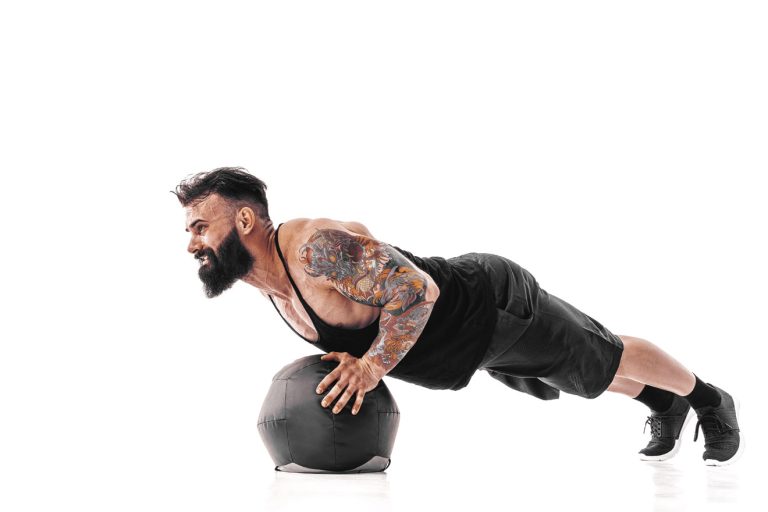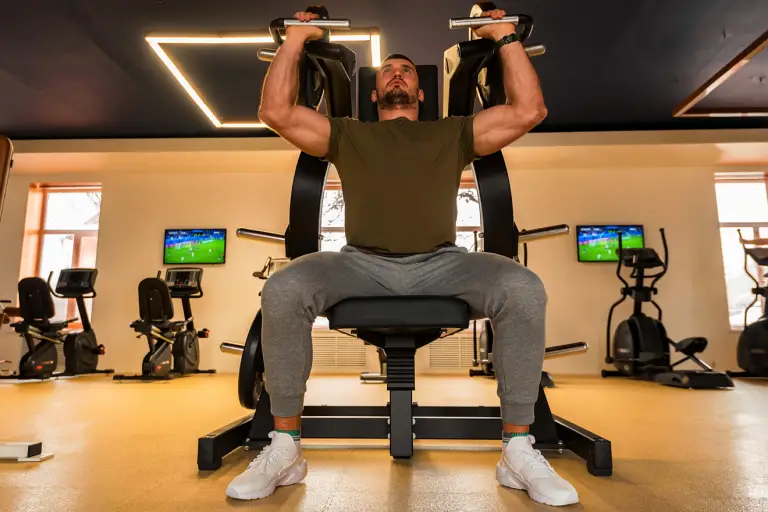When can you call yourself an expert in weight training?
Key takeaways
- Being an expert in weight training isn’t about how much you lift, but how well you understand and apply training principles.
- True expertise requires in-depth knowledge of technique, programming, anatomy, recovery, and progression.
- Emotional discipline, long-term consistency, and the ability to adapt training for different goals are key indicators of expertise.
- Mastery means you can coach others effectively, troubleshoot plateaus, and adjust training across different life phases.
What does it really mean to be an expert in weight training?
Many gym-goers wonder at some point if they’ve finally reached that elusive ‘expert’ level. Maybe your physique has transformed, your lifts are heavy, and friends constantly ask for advice. But physical progress is only part of the equation. True expertise in weight training goes far deeper than big lifts and visible abs.
This article explores the real knowledge and skillset needed to be considered an expert in weight training. Even if you’re not aiming to coach others or open your own facility, knowing where you stand can help you identify what to learn next—and unlock better results.
Technique mastery across a broad range of lifts
Expert lifters don’t just know how to deadlift, bench, or squat—they understand the biomechanics behind each movement. They can explain why foot position affects knee tracking, how grip width influences shoulder loading, and what to watch for when spotting another lifter.
They’ve usually spent years perfecting the fundamentals and can apply proper form under fatigue, heavy loads, and different rep ranges. Even more importantly, they know how to spot and correct flaws in their own technique and in others’.
If you haven’t yet recorded your own lifts, scrutinised your form, and made consistent adjustments, you’ve still got steps to take toward mastery.
Programming knowledge: from progressive overload to periodisation
One of the clearest signs of an expert is the ability to create and adapt training programs intelligently. That means more than just mixing up exercises. An expert understands the principles of progressive overload, deloading, recovery management, and periodisation.
They can explain why a 4-week hypertrophy block is followed by a strength phase, or when it’s appropriate to switch from linear to undulating progression. They know the signs of overreaching versus overtraining, and they plan recovery as deliberately as they plan workouts.
This level of programming insight comes from both study and years of trial, error, and reflection.
Deep understanding of muscle anatomy and function
Experts don’t train “chest and arms.” They train the pectoralis major, triceps brachii, deltoids, and supporting stabilisers. They know what movements bias the long head of the triceps or how to tweak an angle to better target the upper traps.
This anatomical awareness allows them to train more efficiently, prevent injuries, and maximise results through smart variation. It also helps with identifying weaknesses and designing solutions.
You don’t need to memorise Latin muscle names, but you should understand which muscles perform which actions—and how different exercises affect them.
Recovery expertise: managing fatigue, sleep, and lifestyle
An expert in weight training knows that growth doesn’t happen in the gym—it happens after. They prioritise sleep, hydration, nutrition, and active recovery as part of their training strategy.
They understand how to adjust intensity or volume based on life stress, poor sleep, or signs of fatigue. They can spot when DOMS is normal versus when it’s a red flag, and they use techniques like contrast showers, mobility work, and strategic rest days to keep progressing.
Mastering recovery doesn’t mean being perfect—it means knowing how to respond when life throws curveballs, so training can still move forward.
Consistency across years—not weeks
Perhaps the most underrated indicator of expertise is time. Many people can string together six great months. Fewer can stay focused for six years.
Expert lifters have trained through busy jobs, travel, life stress, minor injuries, and plateaus. They’ve figured out how to make training fit their life—and how to keep going when motivation dips.
Consistency isn’t glamorous, but it’s the bedrock of all progress. If you’ve stuck with your training and refined it over the long haul, you’re on the expert path.
Emotional control and ego-free training
A true expert doesn’t let ego dictate their training. They don’t chase one-rep maxes on bad days, skip warmups, or push through pain to prove a point.
They train intelligently and humbly, understanding that every decision in the gym has a consequence. If they drop weight to fix form, it’s a win. If they skip a session to recover better, it’s strategic.
This emotional discipline is often what separates long-term success from recurring injury or burnout.
Troubleshooting: identifying and solving plateaus
When progress stalls, experts don’t panic. They troubleshoot. They analyse volume, intensity, frequency, recovery, nutrition, sleep, and even mental attitude.
They know the difference between a plateau and a realistic slowdown. They tweak one variable at a time, measure results, and make data-informed adjustments.
Plateaus are part of the game, but how you handle them reveals your level of expertise.
Coaching ability—even if you’re not a coach
Experts often find themselves helping others—form-checking, recommending programs, or offering tips. Even if they never plan to coach professionally, they’ve developed the communication skills to explain complex concepts simply and respectfully.
They can recognise others’ weak points, suggest improvements without judgement, and help friends or training partners progress safely.
This teaching mindset shows a deeper understanding than simply knowing what works for yourself.
Adapting training for different goals and phases of life
A true expert can tailor their approach based on goals: muscle growth, strength, fat loss, or general fitness. They understand that training as a 25-year-old with tons of free time is different from training at 40 with a full-time job and family.
They adapt volume, exercise selection, and recovery strategies to fit the circumstances—not the other way around.
This flexibility is what allows expert lifters to stay consistent, resilient, and injury-free over the long term.
The final level: from student to master
Even the most advanced lifters keep learning. What sets experts apart is their willingness to stay curious, read, ask questions, and adapt to new information.
They’re confident, not arrogant—and they know that mastery is a moving target.
If you’ve developed the knowledge, emotional maturity, and discipline described here, congratulations. You’ve likely reached the level where you could even open your own gym—perhaps using a helpful gym business plan template to make it happen.
You could also make it official and take a level 3 personal training course, after which you could monetize your know-how and expertise.
But even if you never do, you’ve earned something just as valuable: the ability to train intelligently, safely, and effectively for life.







